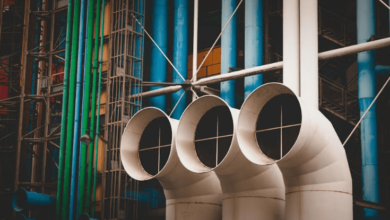Overcoming Challenges in Natural Gas Engine Emissions Testing

Natural gas engines are becoming increasingly popular due to their lower emissions compared to traditional diesel engines. However, testing these engines for emissions can pose many challenges. In this blog post, we will explore some common obstacles in the natural gas engine emissions testing process and provide strategies for overcoming them.
Lack of Standardized Testing Procedures
One major challenge in natural gas engine emissions testing is the lack of standardized testing procedures. Unlike diesel engines, which have well-established testing protocols, natural gas engines don’t have universally accepted emission testing standards. This can make it difficult to compare results across different tests and ensure accurate and reliable data.
To address this challenge, researchers and industry stakeholders are working toward developing standardized testing procedures specifically for natural gas engines. By establishing consistent methodologies and protocols, it will be easier to compare emissions data from different sources and ensure that test results are accurate and reliable.
Variability in Fuel Composition
Another challenge in natural gas engine emissions testing is the variability in fuel composition. Natural gas is a mixture of different hydrocarbons, with varying levels of methane, ethane, propane, and other gasses. The composition of natural gas can vary depending on the source and processing methods, which can impact engine performance and emissions.
To overcome this challenge, researchers recommend using representative fuel samples in emissions testing to account for variations in fuel composition. By using a range of fuel samples with different compositions, researchers can better understand how different fuels affect engine emissions and develop strategies to minimize environmental impact.
Complex Emission Control Systems
Modern natural gas engines are equipped with sophisticated emission control systems designed to reduce harmful pollutants, such as nitrogen oxides and particulate matter. However, these complex systems can pose challenges during emissions testing, as they may interact with the engine’s operation and affect test results.
To address this challenge, researchers recommend conducting thorough calibration checks on emission control systems before testing begins. By ensuring that the systems are functioning properly and not interfering with test results, researchers can obtain more accurate data on engine emissions and identify areas for improvement.
Limited Access to Advanced Testing Equipment
Emissions testing for natural gas engines requires specialized equipment, such as exhaust analyzers, particulate measurement devices, and sampling probes. However, many research facilities and testing centers may not have access to advanced equipment or expertise needed to conduct comprehensive emissions tests.
To overcome this challenge, researchers recommend collaborating with external laboratories, research institutions, or advanced testing centers like San Diego Power, LLC. that have the equipment and expertise to conduct emissions tests on natural gas engines. By partnering with experts in the field of emission measurement technology, researchers can access state-of-the-art equipment and ensure high-quality test results.
Data Interpretation and Analysis
Once emissions tests have been conducted on natural gas engines, researchers must analyze the data collected from exhaust analyzers and other measurement devices. Interpreting complex emission data can be challenging due to the variety of pollutants measured during tests and the need to comply with regulatory standards for emission levels.
To address this challenge, researchers recommend using advanced data analysis tools, such as statistical software programs or modeling techniques, to accurately interpret emission data. By applying rigorous analytical methods to test results, researchers can identify trends in engine performance and emissions over time and develop strategies for optimizing engine operation.
The journey toward reducing emissions from natural gas engines is a complex but crucial endeavor. It requires a multifaceted approach that includes not only advanced technological innovations and rigorous testing protocols, but also a collaborative effort between scientists, engineers, policymakers, and industry leaders.
By embracing these challenges and focusing on continuous improvement, we can significantly enhance the environmental performance of natural gas engines. This commitment to progress will not only help mitigate the adverse effects of climate change, but also pave the way for a cleaner, more sustainable energy future for generations to come.



